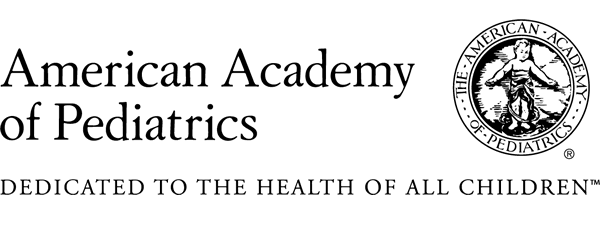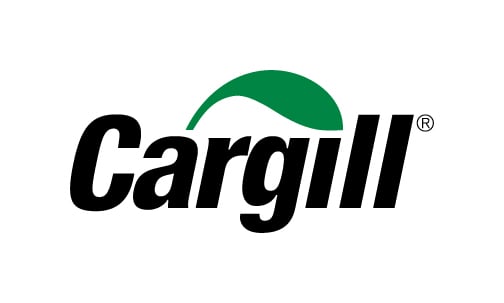Putting market forces to work to increase the demand for healthier foods.
Major support for the Project on Nutrition and Wellness was provided by:
Robert Wood Johnson Foundation
We would also like to thank the following organizations and individuals for their support:
Academy of Nutrition and Dietetics
Akin Gump Strauss Hauer & Feld LLP
American Academy of Pediatrics
Anthem, Inc.
Bipartisan Policy Center
Campbell Soup Company
Cargill
Michael & Susan Dell Foundation
Food Marketing Institute Foundation
Lisa & Douglas Goldman Fund
Grocery Manufacturers Association
Kaiser Permanente National Community Benefit Fund
Maja Kristin
PepsiCo
National Association of Convenience Stores
Stuart Family Foundation
Walmart Foundation
The Vision
Beginning in 2012, the Project on Nutrition and Wellness (PNW) brought together food manufacturers, public health experts, food retailers, community groups, healthcare providers, consumer advocates, health insurers, and others to explore cross-sector approaches to improve American diets to reduce nutrition-related problems.
The group sought to address this significant public health issue by utilizing market forces to increase consumer demand for healthier foods. They also aimed to encourage consumers to eat healthier by buying healthier – a goal they all shared and an idea that wasn’t receiving enough attention in the marketplace.
Throughout the project, PNW stakeholders moved this agenda forward by commissioning new consumer research, identifying marketing opportunities to grow sales of healthier foods, conducting pilot tests in grocery and convenience stores, and developing tools for the grocery retail industry to help shift consumer demand toward healthier eating.
The Problem
The crisis of poor nutrition among Americans represents a defining public health challenge for our generation. Rates of health implications from poor nutrition have risen sharply over the past three decades. Many costly and burdensome chronic diseases are linked to excess weight, including type 2 diabetes, cancer, heart disease, hypertension and arthritis.
Despite efforts to increase awareness of the importance of health and wellness, the prevalence of nutrition and diet-related conditions has increased. Weight-related health conditions lower the quality of life for many Americans and adversely affect the U.S. economy. Unhealthy food habits also impact national security, as many potential military recruits and large numbers of current service members are not physically fit to serve.

The U.S. spent $190 billion on weight-related health care expenses in 2005.
National Library of Medicine

Rates of type 2 diabetes more than tripled from 5.6 million in 1980 to 19.7 million in 2009, with an estimated 7-8 million Americans still undiagnosed.
CDC

In 2010, 59% of females and 47% of males who took the military’s entry-level physical fitness test failed.
Bipartisan Policy Center
Convergence Dialogue Consensus Blueprint
Develop a national campaign around healthy eating and living
The campaign would include marketplace and communications programs that reach consumers in multiple ways such as when food shopping, visiting the doctor or listening to public service announcements.
Design and promote large scale efforts to integrate food retail, nutrition and health care services
Offer consumers a one–stop shop for these services. Financial incentives such as coupons or dining points for the purchase of healthier foods could be built in.
Improve the wholesale supply chain for fresh foods nationwide
Assist small retailers who often have limited access to fresh produce and other healthier items.
Assist small chains and independent stores
Provide support to stores that face challenges in promoting and marketing new products due to limited resources.
Project Outcomes
Convergence Joins The “Convenience Matters” Podcast
Convergence’s Project on Nutrition and Wellness project director Amy Slechta joins the National Association of Convenience Stores (NACS) “Convenience Matters” podcast to discuss how Convergence and NACS have been working to increase access to and the sale of healthier food options in grocery and convenience stores.
Project on Nutrition and Wellness Grocery and Retail Scorecard
The Grocery Retail Scorecard is designed to help retailers meet growing consumer demand for healthy and “better-for-you” foods and beverages. It is a set of 90 evidence-based strategies that grocery retailers can implement in their stores to grow sales of healthier foods and beverages. These changes are of little or no cost to the retailer. This program was developed in partnership with the Cornell University Food and Brand Lab and grocery retail and public health partner organizations.
NCCOR Global Lessons Report
Convergence’s Project on Nutrition and Wellness is featured as an example of a successful public health-industry alliance for combatting childhood obesity in a new report by the National Collaborative on Childhood Obesity Research (NCCOR).
Testimonials

In the News

5 Takeaways From C-Stores' Meal-Kit Tests
“NACS partnered with the Project on Nutrition and Wellness and the Cornell Food and Brand Lab to get a feel for the challenges ahead of c-stores as they enter the burgeoning market.”

National Convenience-Store Initiative Launches Here Square One Tests Family Dinner Kits In Bethlehem
The Lehigh Valley Business Journal highlights the Six O’Clock Scramble Fresh and Fast Family Dinner Kits pilot in Bethlehem, PA. This was made possible thanks to a collaboration between Convergence’s Project on Nutrition and Wellness, and the National Association of Convenience Stores, among others.

C-Store Chain Launches Meal Kit Pilot
Convenience Store and Fuels News (CSPnet.com) describes the Six O’Clock Scramble meal kit pilot project to encourage healthier choices among convenience store shoppers.
Interested in funding a project in the future?
Check out our donate page or contact our development team to learn more.



















